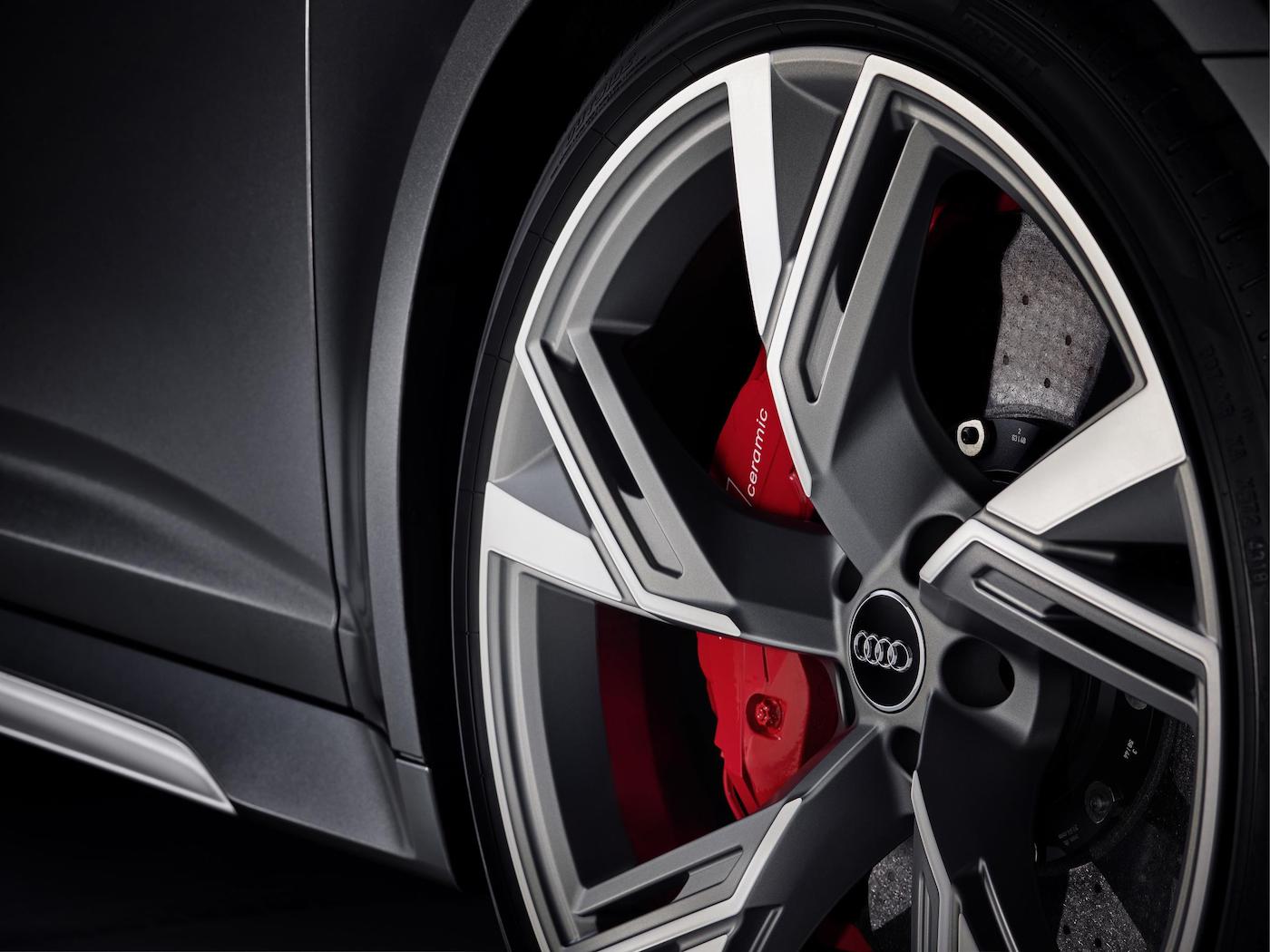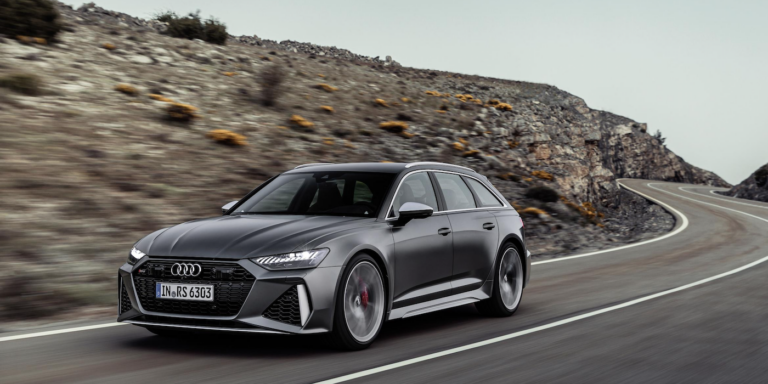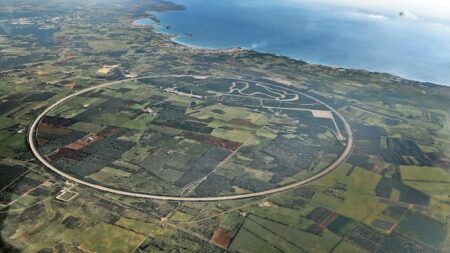The fourth-generation Audi RS 6 Avant has finally been revealed. The uber-estate boasts the expected ballistic power, with the twin-turbo eight-cylinder TFSI delivering 600PS and 800Nm, but with slightly unexpected additions: a 48V electrical system, mild hybrid drive and cylinder-on-demand technology.
The power numbers are big, but the performance figures are impressively small: 0-62mph (100km/h) in 3.6 seconds, 0-124mph in 12 seconds and a top speed limited to 155mph. That acceleration is aided by a new launch control function, which transmits power to the quattro permanent all-wheel drive system, with drive forces distributed to the front and rear axles in a ratio of 40:60 via the all-mechanical centre differential. If one wheel slips, more drive torque automatically goes to the axle with the better traction, with up to 70% of power able to be channelled to the front wheels and up to 85% to the rear wheels.
The wheel-selective torque control function further optimises the handling, braking the wheels with reduced load on the inside of a bend slightly before they can begin to spin. The quattro sport differential shifts the drive torque when cornering at speed as required between the rear wheels, thus improving traction, stability and dynamics.

The dynamics details
The front and rear axles use a five-link design to handle the induced longitudinal and transverse forces separately, with the linkages and the subframes made mostly of aluminium. The track width is 1,668mm at the front and 1,651mm at the rear.
The body of the RS 6 Avant is 20mm lower than in the Audi A6 Avant with standard suspension, and at speeds of 74mph and above, it is lowered by further 10mm by the RS sport air suspension. For low-speed urban driving, a lift mode is available to raise the vehicle by 20mm.
The car also features progressive steering, with its direct ratio as standard. The system is claimed to develop “significantly” high return forces, with increasing steering angle for precise steering feedback and a newly developed power assistance system.
The driver can customise the character of the RS 6 Avant via the dynamic handling system, which has six profiles: comfort, auto, dynamic, efficiency, and the individually configurable RS-specific RS1 and RS2 modes, which can also be activated directly using the “RS Mode” steering wheel button. The dynamic handling system influences the engine and transmission management, the power steering, the suspension, the dynamic all-wheel steering, the quattro sport differential, the engine sound and the operation of the automatic air conditioning. The RS2 mode directly influences the ESC at the push of a button, with an option to completely disable the system – if you’re feeling brave….






